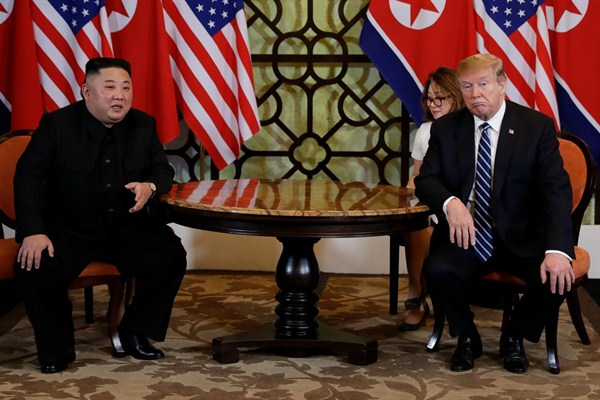North Korea sanctions were back in the news last week. On Thursday, the United States Treasury Department announced economic penalties on two Chinese shipping companies for breaching United Nations sanctions on Pyongyang. That announcement was seemingly reversed Friday by President Donald Trump, who said on Twitter that he would be rescinding newly announced Treasury Department sanctions against North Korea. After some confusion, the White House explained that Trump was referring to as-yet unannounced U.S. unilateral sanctions, highlighting the administration’s lack of coordination on key messaging with regard to North Korea.
Observers could be forgiven for seeing the mix-up as an appropriate metaphor for the state of North Korea sanctions more generally. In early March, the U.N. Security Council’s panel of experts on North Korea released its latest report, which indicated that the “nuclear and ballistic missile programmes of the Democratic People’s Republic of Korea (North Korea) remain intact and the country continues to defy Security Council resolutions through a massive increase in illegal ship-to-ship transfers of petroleum products and coal.”
The report emphasizes just how challenging the enforcement of the sanctions regime is, with Pyongyang finding new and more sophisticated ways to evade the punitive measures. In addition to ship-to-ship transfers at sea, the North continues to rely on its relationships with countries in Africa, such as Sierra Leone, the Democratic Republic of Congo, Sudan and others, to bring in profits in defiance of the sanctions. The panel also noted how North Korean diplomats continue to play a key role in sanctions evasion and illicit business at overseas missions.

